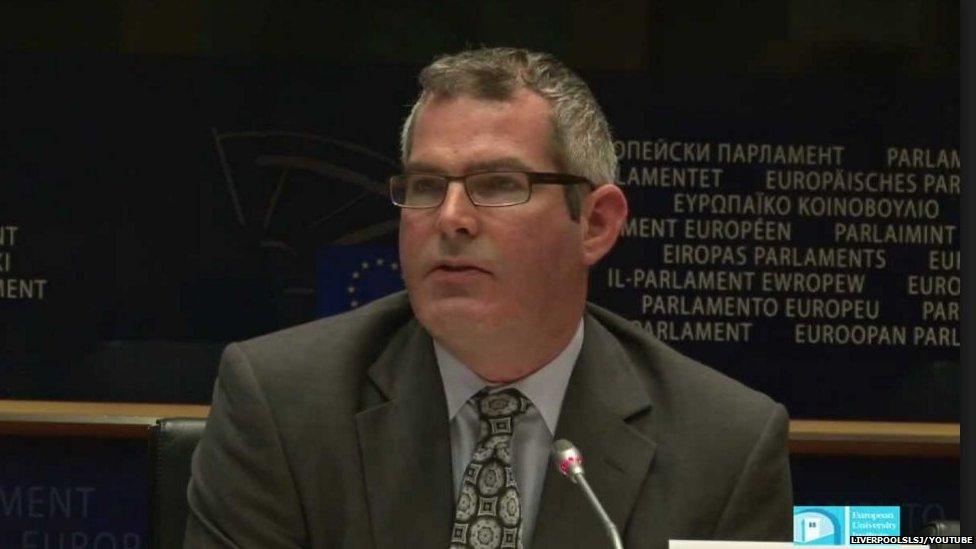Article 50: The simplest explanation you'll find
- Published

The prime minister has told the BBC she will formally begin the Brexit process before the end of March 2017.
The UK voted to leave the EU in June but this is no short-term relationship where you can unfollow, delete and move on.
There's a formal legal process called Article 50 - but it's never been used and it's pretty vague.
Some experts believe it could take up to 10 years for the UK to exit the European Union.
What is Article 50?

The Lisbon Treaty became law in December 2009, eight years after European leaders launched a process to make the EU "more democratic, more transparent and more efficient".
It's an agreement signed by the heads of state and government of countries that are part of the EU.
Part of that law was Article 50, external. A very basic five-point plan should any country wish to leave the European Union.
Six years later and here we are.
Vote Leave may have won in the EU referendum but it will be a long time until we actually leave.
The UK's exit has to be negotiated with the remaining 27 members of the EU and ultimately approved by them.
Once the UK tells the EU that it is withdrawing under Article 50, "the member of the European Council or of the Council representing the withdrawing Member State shall not participate in the discussions of the European Council or Council or in decisions concerning it," the rule says.
However, the UK will carry on taking part in other EU business as normal, but it won't participate in internal EU discussions or decisions about its own withdrawal.
Longer than two years?
These negotiations are meant to be completed within two years although many believe it will take much longer.

Professor Michael Dougan thinks leaving the EU will take around a decade
Leading European Union law professor Michael Dougan says he's basically spent his entire professional working life looking at all things EU.
"The overwhelming consensus is that these things do not take two years to negotiate, the rough guide that we are all talking about in the field is around 10 years.
"The treaty said that you have two years within which to make your divorce settlement. But the divorce settlement is completely separate from the framework agreement for your future relations with the EU."
Out of decision-making
Once Article 50 is activated the UK is cut out of EU decision-making at the highest level and there will be no way back unless by unanimous consent from all other member states.
"So what we will have is a period of two years to actually reach our divorce, the actual severance of ties between the UK and the EU."

"The main question which will arise is what do we do with the three million or so EU nationals currently living, working, studying in the UK?
"What do they do with the two million or so UK nationals currently living, working, studying in the rest of the EU?"

"The Swiss signed their first framework agreement with the EU back in 1972 and they are still negotiating.
"They have now done well over 100 bilateral treaties to deal with particular issues as they go along, it is hardly comprehensive."
The Lords EU Committee said determining the rights of two million UK nationals living in the EU would be a "complex and daunting" part of exit talks.
It also says trade deals between the EU and non-EU states take between four and nine years on average.
BBC Reality check has more fact checking and impartial analysis of the EU Referendum.
Find us on Instagram at BBCNewsbeat, external and follow us on Snapchat, search for bbc_newsbeat